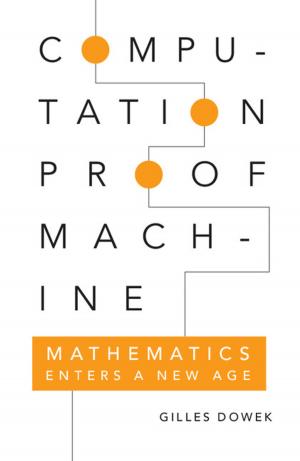Rousseau's Critique of Inequality
Reconstructing the Second Discourse
Nonfiction, Religion & Spirituality, Philosophy, Modern, Social & Cultural Studies, Social Science| Author: | Frederick Neuhouser | ISBN: | 9781139986397 |
| Publisher: | Cambridge University Press | Publication: | June 19, 2014 |
| Imprint: | Cambridge University Press | Language: | English |
| Author: | Frederick Neuhouser |
| ISBN: | 9781139986397 |
| Publisher: | Cambridge University Press |
| Publication: | June 19, 2014 |
| Imprint: | Cambridge University Press |
| Language: | English |
Rousseau's Discourse on the Origin of Inequality among Mankind, published in 1755, is a vastly influential study of the foundations of human society, including the economic inequalities it tends to create. To date, however, there has been little philosophical analysis of the Discourse in the literature. In this book, Frederick Neuhouser offers a rich and incisive philosophical examination of the work. He clarifies Rousseau's arguments as to why social inequalities are so prevalent in human society and why they pose fundamental dangers to human well-being, including unhappiness, loss of freedom, immorality, conflict, and alienation. He also reconstructs Rousseau's four criteria for assessing when inequalities are or are not legitimate, and why. His reconstruction and evaluation of Rousseau's arguments are accessible to both scholars and students, and will be of interest to a broad range of readers including philosophers, political theorists, cultural historians, sociologists, and economists.
Rousseau's Discourse on the Origin of Inequality among Mankind, published in 1755, is a vastly influential study of the foundations of human society, including the economic inequalities it tends to create. To date, however, there has been little philosophical analysis of the Discourse in the literature. In this book, Frederick Neuhouser offers a rich and incisive philosophical examination of the work. He clarifies Rousseau's arguments as to why social inequalities are so prevalent in human society and why they pose fundamental dangers to human well-being, including unhappiness, loss of freedom, immorality, conflict, and alienation. He also reconstructs Rousseau's four criteria for assessing when inequalities are or are not legitimate, and why. His reconstruction and evaluation of Rousseau's arguments are accessible to both scholars and students, and will be of interest to a broad range of readers including philosophers, political theorists, cultural historians, sociologists, and economists.















